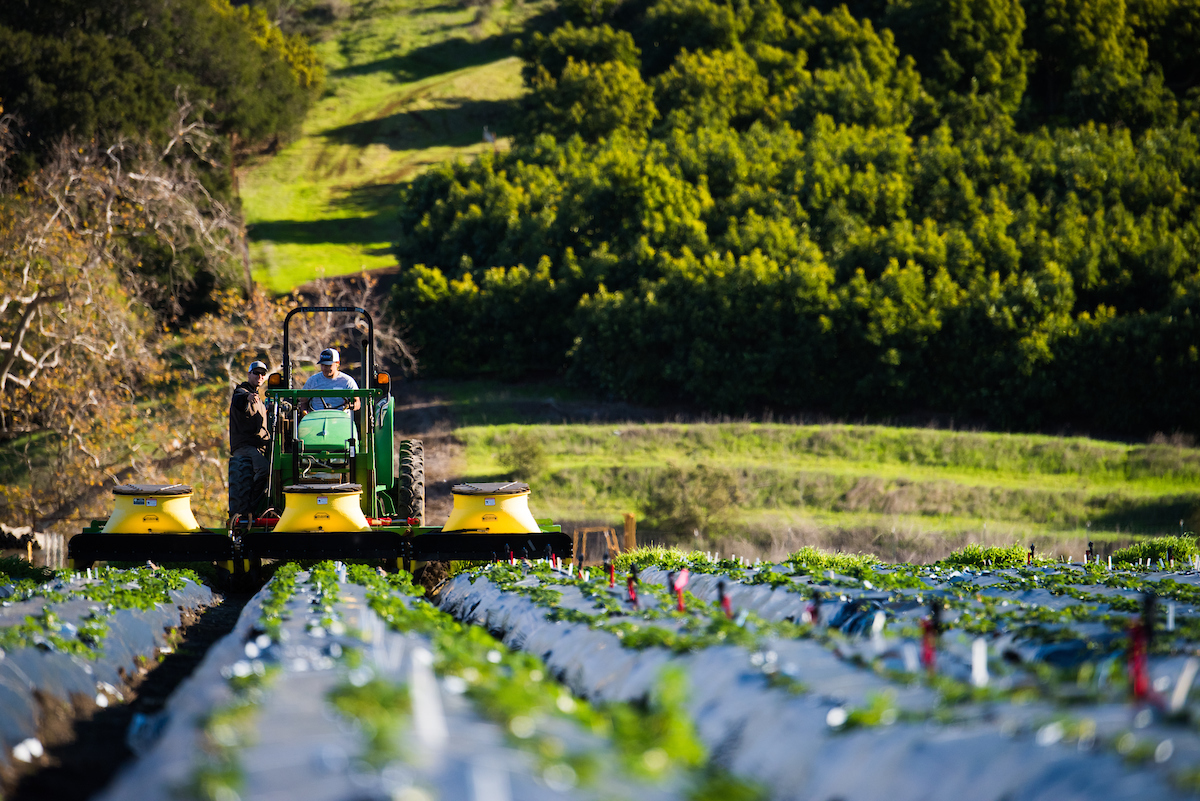The Department of Agricultural and Bioresources Engineering was established in 1983 as Department of Agricultural Engineering. The degree of B. Eng. (Agricultural Engineering) was approved for the department in 1983. In 2008, the name of the department was changed to Agricultural and Bioresources Engineering. The first set of graduands passed out in 1989. The Department now offers approved undergraduate and postgraduate degree programmes up to Ph.D. level.

Vision
To be a world class centre of excellence committed to the development and improvement of agricultural resources through engineering for economic, social and cultural well-being.
Mission
The Department is committed to the Advancement of Engineering knowledge in Agriculture through excellent teaching, learning and research and to empower our graduates to be self-reliant.
Agricultural & Bio-resources Engineering is an interdisciplinary program that integrates engineering, design and the biological sciences. It is a unique profession that applies engineering principles to the enhancement and sustainability of the world’s natural resources. Agricultural & Bio-resources Engineers seek solutions to problems that involve plants, animals and the environment.
Agricultural Crop Processing & Storage Processing is the discipline that takes agricultural products as the research object, based on biology and engineering, studies the basic science and engineering technical problems, like agricultural products storage and transportation, processing and the comprehensive
The Department of Agricultural and Bioresources Engineering was established in 1983 as Department of Agricultural Engineering. The degree of B. Eng (Agric. Engineering) was approved for the department in 1983. In 2008, the name of the department was changed to Agricultural and Bioresources Engineering. The first set of graduands passed out in 1989. The Department now offers approved undergraduate and postgraduate degree programmes up to PhD level. The Staff strength rose from just three (3) in 1987 to thirty eight (38) i.e. (27 academic staff and 11 Non-academic Staff) in 2014. The department encourages research activities and training for its staff while emphasis is placed on practical exposure for its students.
Engr. Dr. DAUDA, Solomon Musa was born in Lassa, Askira/Uba Local Government Area of Borno State. He attended Central Primary School Uba, Borno State, Nigeria for First School Leaving Certificate, Government College Maiduguri, Borno State, Nigeria for Senior School Certificate Examination, University of Maiduguri, Nigeria where he graduated with B.Eng. He also attended Federal University of Technology, Minna, Nigeria for his M.Eng and later proceeded to Universiti Putra Malaysia, Malaysia where he obtained PhD in 2014 (Farm Power and Machinery). Engr. Dr. S. M Dauda is married and blessed with Children. He has graduated over 40 both undergraduate and Postgraduate students and also 50 scholarly publications to his credit.
I know that though man may labour, it is not given to him to determine the final outcome of his actions. I am therefore a firm believer in divine providence in spite of a personal commitment to diligence and a strong determination to see any duty or assignment through. My idea of leadership is one that serves through perseverance, personal integrity and justice. I have been guided by these principles in all my professional, social and religious involvement. Professionally, I have attempted to contribute my own little quota to the agricultural mechanization of rice, soybean, sugarcane, palmyra, etc. in Nigeria and also that of kenaf in Malaysia. My modest efforts in research have resulted in scientific publications of which is being sought by colleagues and libraries all over the World. I hold the view that I still possess the ability to learn and motivate others and the potentials to attain greater heights, God willing.